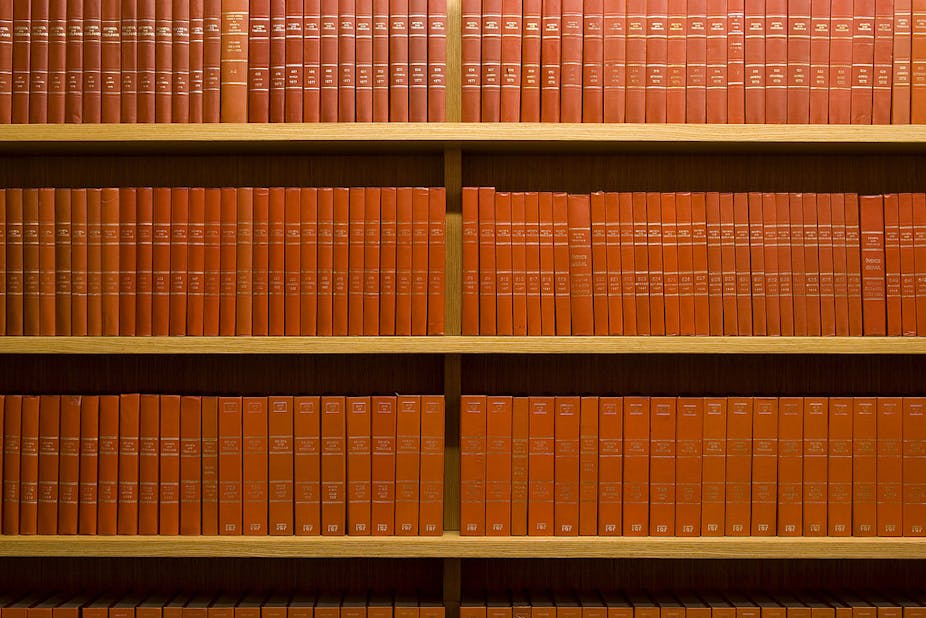Law reform is required to support innovation and enable Australian universities to compete with the rest of the world in online education, say leading Australian educators.
In their submissions to the Australian Law Reform Commission’s review of copyright legislation, both Universities Australia and the University of Sydney argue the Copyright Act is holding back innovation in the tertiary education sector.
The sector is particularly concerned that current “fair dealing” provisions in the Copyright Act do not support the use of copyrighted material in the delivery of Massive Open Online Courses (MOOCs).
“The University supports copyright law reform that will foster new and innovative ways of providing education to a wider audience,” wrote University of Sydney Vice-Chancellor Dr Michael Spence in the university’s submission to the review.
“Of particular concern are the communication limits that restrict the ability to teach our students in a way that is fair in other jurisdictions,” Dr Spence wrote.
Currently if a university faculty wishes to make a reasonable portion of a published work available online it can only do so if no other faculty has made part of the same work available.
“Such limitations make no sense today and impede the effective delivery of course materials to our students,” Dr Spence wrote.
In its submission to the ALRC, Universities Australia says despite Australian universities paying more than $200 million a year to commercial publishers for access to academic journals, and $30 million for content delivery under statutory licences, none of this content can currently be used to deliver MOOCs.
This leaves Australian universities only able to offer course material developed within the university, putting them behind their US competitors that are able to include third-party content under fair use provisions of the US Copyright Act.
As a result, the perception that a MOOC is just a cut down version of an existing course is only likely to be magnified in Australia, said Derek Whitehead, university copyright officer at Swinburne University of Technology, and chair of the Australian Digital Alliance.
And the existing exceptions in the Australian Copyright Act do little to help.
“The list of specific exceptions in Australian copyright legislation is over 10 pages long. We have specific exceptions for specific cases and it’s nowhere near as flexible as the US system,” Mr Whitehead said.
The education sector is now likely to face a stand-off with copyright owners as the ALRC gets closer to delivering its recommendations to the government in November.
“There is a broad group loosely in favour of introducing a broad fair use exception into Australian copyright law”, Mr Whitehead said. “The Australian Digital Alliance, the education industry and the big internet companies are all loosely in favour of a fair use exception, as are others.”
However those with major interests in copyright ownership may see it differently.
“Even though copyright owner interests are often based in the US, they’re not necessarily in favour of extending fair use regimes to other countries,” Mr Whitehead said.
Deakin University is one institution currently working within the bounds of the Australian Copyright Act as it develops a range of MOOCs
“At present most content is directed at enrolled students who have a clear university affiliation. This means the content created in a course/unit is controlled, usually through a learning management system,” said Deakin University Vice-Chancellor Jane den Hollander.
“A difficulty may arise when universities create a MOOC by opening to the public a course or unit that was previously only intended for a closed group of students who would be the intended users of any intended content, including that provided under licence.”
Professor den Hollander said Deakin is planning to create a new MOOC that has as an original intent exposure to anyone who wishes to do it, not just fee paying Deakin enrolled students.
“This means working from within the limitation of the Act from the start and of course using open educational resources wherever possible, as well as generating our own materials for which we own the copyright.”
The University of Melbourne already offers a small number of MOOCs via Coursera.
To do so, the university uses content that it has created as well as open licensed content, such as Creative Commons material, or material for which it has obtained a license.
However Helen Thomson, manager of the University Copyright Office, said the statutory licences the university would normally rely on to use third party content do not apply to MOOCs, so it has had to find alternatives.
“Obtaining individual licenses for content is resource intensive and time consuming so it is not effective when dealing with large amounts of content,” Ms Thomson said.
She added that the university would like to see more flexibility in the Copyright Act, with current Australian copyright law meaning Australia ran the risk of being one step behind when adopting and using innovative new technologies.
“The flexibility of fair use means the US can more easily take advantage of new opportunities to deliver online content.”


